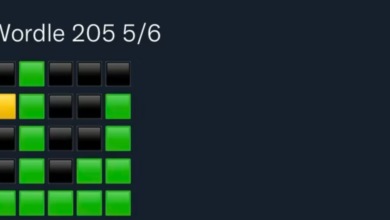Best Free Family Calendar App

Managing a family’s busy schedule can feel like trying to solve a puzzle with missing pieces. With school, sports, and family events all vying for attention, it’s easy to lose track of who has what going on. Thankfully, free calendar apps are here to help! These apps not only keep track of important dates but also make it easy to share plans and responsibilities among family members. Now, we’ll take a closer look at some of the best free calendar apps that can help your family stay organized and connected. Whether you’re a tech-savvy parent or just getting started, there’s something here for everyone. Let’s explore the options and find the perfect fit for your family!
1. Google Calendar
Google Calendar is honestly one of the easiest apps to use. It works on all your devices, which is nice if you use a phone, tablet, or laptop. You can create shared events and even color-code different calendars for each person in your family, so it’s easy to know who’s doing what. Plus, since it’s Google, it works really well if you already have a Gmail or Android phone.
Key Features:
• Create multiple calendars for different family members.
• Set reminders so you don’t forget anything important.
• Syncs perfectly across all devices.
This app is great for families already using Google services since everything works together.
2. Cozi Family Organizer
Cozi is like the ultimate family organizer. It’s not just a calendar, but it also has grocery lists, to-do lists, and even helps with meal planning. What’s cool is that everyone gets their own color on the calendar, so you can see who’s got what going on at a glance. Cozi also sends daily or weekly emails to remind everyone of the upcoming plans.
Key Features:
• Color-coded calendars for each family member.
• Shared shopping lists and meal planning tools.
• Sends daily or weekly agendas to keep everyone updated.
For busy families, Cozi helps manage not just events but also the daily stuff like shopping and meals, so everything runs smoothly.
3. TimeTree
TimeTree is all about working together as a family. Everyone in the family can add or edit events, making it super collaborative. You can create different calendars for school, work, and personal stuff too. It’s also got a chat function, so you can talk about plans directly in the app.
Key Features:
• Shared calendar where everyone can add/edit events.
• Chat feature to discuss plans in real-time.
• Multiple calendars for different purposes (school, work, etc.).
This app is ideal for larger families who need everyone to pitch in on scheduling.
4. Microsoft Outlook Calendar
If your family uses Microsoft services like Outlook or Office 365, then Microsoft Outlook Calendar is a great option. It syncs with all Microsoft accounts and allows easy event sharing with family members. Plus, it comes with to-do lists and event reminders, so you don’t forget important stuff.
Key Features:
• Works well with all Microsoft services.
• Shared calendars for family members.
• Built-in to-do lists and reminders.
This app works best for families already using Microsoft tools, or if you prefer a more professional-looking interface.
Benefits of Google Calender
A shared family calendar is a must-have for any busy household. It gives you one reliable place for everyone’s schedule, making sure you, your spouse, and your kids are all on the same page. Here’s why you need one:
- Prevent missed appointments: You might think you’ll remember every appointment, but as a parent, you’ll quickly learn that relying on memory doesn’t always work. A shared calendar ensures nothing slips through the cracks.
- Avoid double-booking: Imagine planning a birthday party for your child, only to realize it conflicts with an important event for your spouse. Without a shared calendar, it’s easy to miss these scheduling conflicts.
- Prepare in advance: Whether it’s finding a babysitter for an unexpected work dinner or arranging rides for your kids’ activities, planning ahead is key. A shared family calendar helps you see when you’ll need extra help, like when your partner’s out of town or you’ve got your own events.
You don’t have to be a master planner to keep things running smoothly. With a shared calendar, you can organize at least a week or two ahead, making life a lot easier for everyone.
What is the best calendar app for families?
The best calendar app for families is Cozi Family Organizer. It offers color-coded calendars for each family member, shared shopping lists, and meal planning tools. Cozi sends daily or weekly agenda updates, making it easy to stay organized. It’s user-friendly and designed specifically for family needs, making it ideal for busy households looking to manage schedules efficiently.
Finding the best calendar app for your family can make a world of difference in organizing your busy lives. Whether you need seamless syncing, collaborative features, or advanced planning tools, these apps provide a great mix of convenience and functionality. The right app will save you time, reduce stress, and ensure everyone in the family is on the same page.


